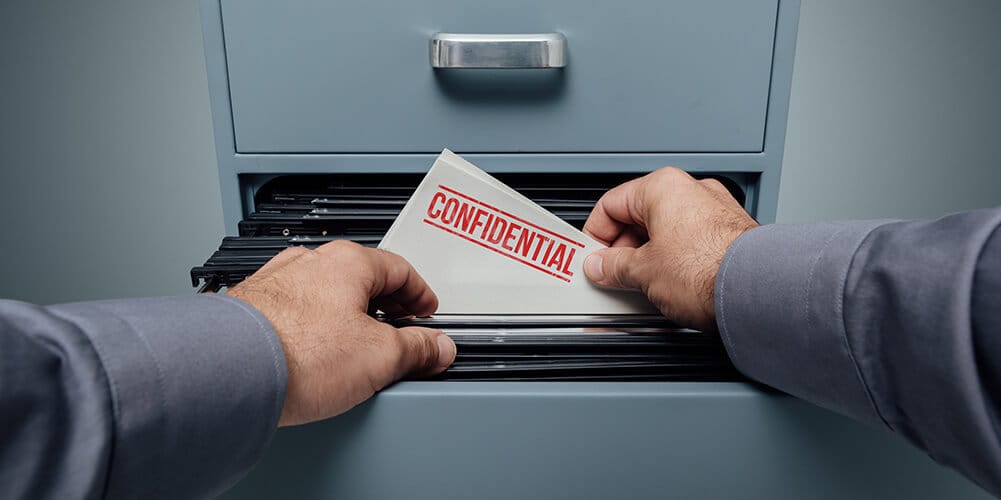Attorney-client privilege is one of the most important features of the legal industry, but it can also be the subject of disputes — especially when privileged information is accidentally shared. In this article, we’re going to review one particular case in which a privileged document was inadvertently revealed during a virtual deposition. We’ll share the basic details of the case, the decision of the court, and explore the broad ramifications of the ruling.
Let’s get started!
The Case in Question
In the Southern District of California, the Orthopaedic Institute for Children filed a patent-infringement lawsuit against medical technologies company, DJO Global. The lawsuit concerned its patents for polyethylene implants for children (Orthopaedic Hosp. v. DJO Global, Inc., 2020 WL 5363307).
During the discovery process, the defendant produced an 88-page agreement and failed to remove an attached letter from their patent counsel. Later, in a virtual deposition, the defense attorney did not recognize this privileged document because of the unclear videoconferencing display, and thus he did not raise an objection. Counselors for the plaintiff cited this as a waiver of privilege and demanded the production of all materials related to patent opinions. On the same day, defense counsel responded with a claw-back letter and demanded the return and destruction of the opinion letter.
The Decision of the Courts
Under the Federal Rule of Civil Procedure 26(b)(5)(B), the producing party must give notice that certain inadvertently produced material is subject to a claim of privilege or other protection. When the plaintiff refused to destroy or return the privileged information, the court was forced to make a decision regarding the privilege waiver.
Ultimately, the court granted the plaintiff’s request and found that the defendant waived attorney-client privilege with regards to the letter. The court further determined that the defense counsel’s failure to object during the deposition meant that he did not “promptly take reasonable steps to rectify” the inadvertent production of the opinion letter, as required under FRE 502(b).
In order to better understand that court’s decision, we must turn to the transcript of the virtual deposition. The plaintiff’s attorney directly referenced the exhibit and the attached letter while questioning the witness. The witness answered the questions and the defense counsel did not object. Although the court acknowledged that there may be technical barriers in a remote deposition, the coinciding testimony regarding the opinion letter was unmistakably about an attorney-client communication, and thus the absence of any immediate objections sufficed to waive privilege.
Final Thoughts
Thanks for reading! We hope that we’ve given you some interesting information to think about as you prepare for your next deposition. Ultimately, it would seem that attorneys must stay vigilant and raise objections immediately, rather than relying on 502(d) orders to support a non-waiver argument.
If you enjoyed this article, consider sharing and commenting on social media. Lastly, when you’re ready to schedule your next deposition, consider partnering with an experienced legal support company like First Legal Depositions.





